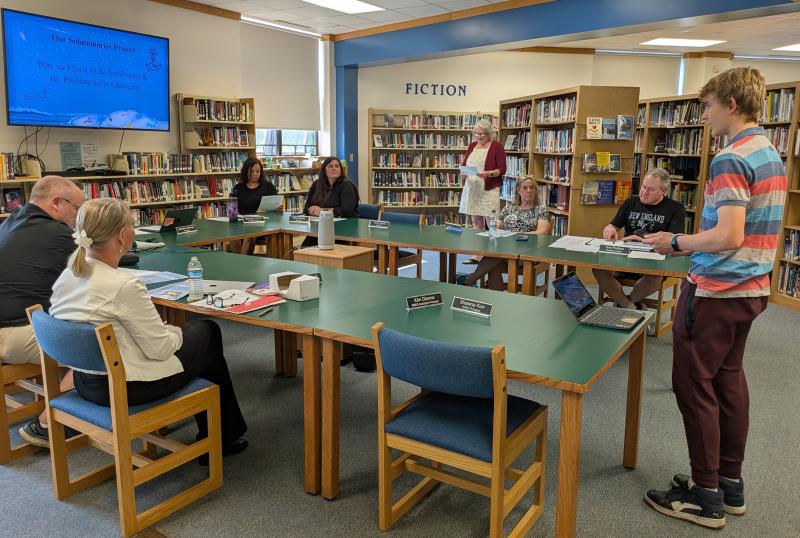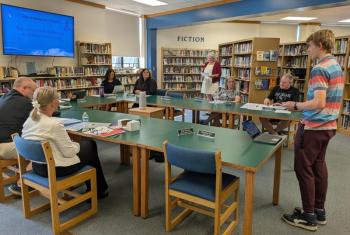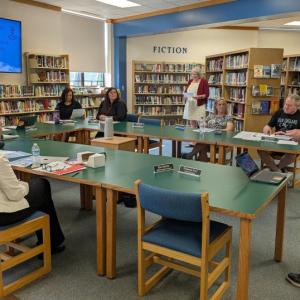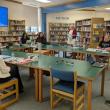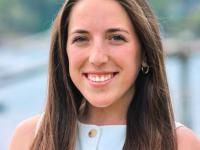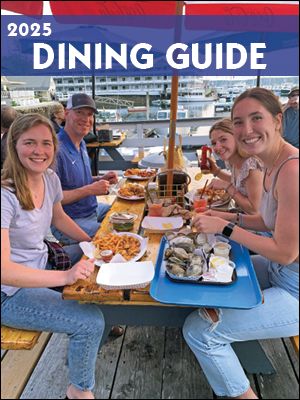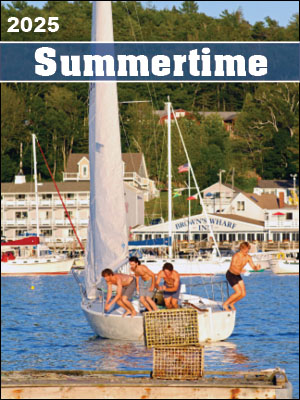New phone policy rings true for BRHS educators
Students at Boothbay Region High School (BRHS) may be interacting more next year, or at least that’s the hope. The Community School District (CSD) School Committee approved a new policy June 11 that limits students’ access to phones and other devices in response to rising concerns about their impact on education and health.
Teachers proposed the policy in May, as reported in the Register. The proposal revolved around the use of a Yondr pouch, a commercially available bag that holds devices using a magnetic lock: A student places their device in the pouch at the start of the school day, locks it, and then unlocks it at a station by an exit when the day is over. Educators said it allows students to keep the device on them but inaccessible during school hours. Exceptions, including for medical reasons, are allowed.
“This is an initiative that is teacher-led by 100% of your educators,” said BRHS Principal Tricia Campbell. “100% of your educators have brought this to you.”
According to Campbell, the initial cost for the program will be covered by a private, $6,500 grant. She added, it would be at least two years before more would be needed for the program and she guaranteed the funds could be raised without including them in the school budget.
Committee member Tom Perkins said the school should help separate kids from their phones, and the return on investment to implement the program is "incalculably high.”
“I am 100% in favor of this,” he said. “I'mprobably the worst one as far as not wanting things in the budget. I just think the cost-benefits analysis — it'sa no-brainer. Whatever it costs almost.”
Others were initially hesitant. Chair Jenn Whitney expressed concern that the current policy isn't being followed with “fidelity,” and, if it were, the pouches may not be needed. Stephanie Hawke also said the pouches are not available outside of school, and students need to learn how to cope without them.
However, educators again lobbied. Technology Integrator Stacy Gauthier said phones are a barrier between valuable student-teacher relationships because of constant notifications and the dopamine hits they provide.
“I work with a lot of the really vulnerable students in the school, and they are the ones that are just constantly having that urge to take that phone out because the academic challenges that are in front of them feel insurmountable. So, they are reaching for that phone as a comfort,” she said.
Teacher Mark Gorey said phones dilute teachers’ ability to help students become more skilled and knowledgeable, even on a personal level. Gorey said students can be on their phones during breaks instead of interacting with friends.
“We know (phones are) designed to be addictive. We know that. That's not a lie anymore. So why would we give it to them is really my question,” added teacher Chris Liberti. “What would perfect adherence to a current policy give us? It would be an improvement. I won't lie to you. But it would be very pale in comparison to what I think all of us want to see for all of our kids academically and socially.”
The committee passed the new BRHS policy unanimously. Students are not allowed phones and other similar electronic devices in younger grades.
In other business, two rising sophomores presented projects they hope will help with local issues, focused on protecting the environment and ocean around Boothbay. Teacher Emily Higgins said they were part of the grant-funded Maine Solutionaries Project, where around 4,000 students worked in teams to identify a problem, and potential solution, around an issue that affects their community.
Izzy Andreasen talked about overboard discharge systems (OBDs), an alternative to traditional septic. OBDs collect and treat wastewater, discharging it directly into a nearby waterbody. However, she said they have difficulty breaking down some chemicals, including certain soaps, and users need to be careful about what is being discharged. Her team made a flyer that can go into homes or rentals with an OBD to educate people on responsible use.
Jackson Zehm said plastic utensils, wrappers, toothbrushes and wood scraps get mixed up in plowed snow. When snow melts, the pollutants can be a part of the runoff that goes into the ocean, creating an unsightly, and environmentally harmful, mix. His team proposed a cleanup day where community members can get trash off the road using planned routes. He said he hopes to distribute flyers around town and put an announcement in the Register to organize the pickup shortly before the first snowfall.

